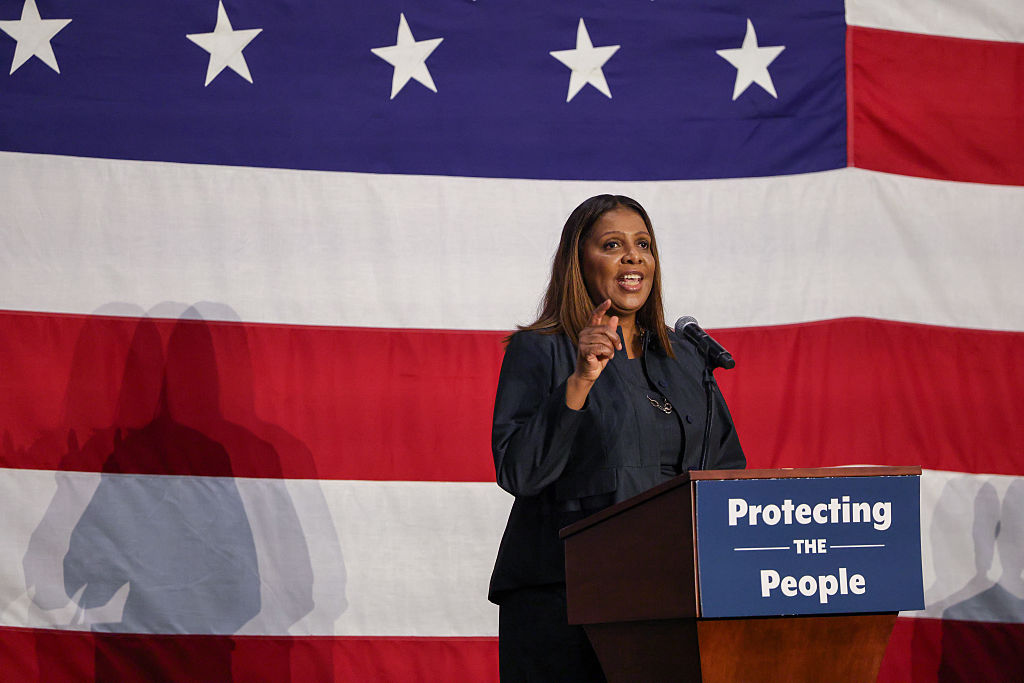Election 2020: Stacey Abrams Won't Run, Can't You Really Blame Her?
After A Stolen Election, Can You Really Blame Stacey Abrams For Not Running Again?
Democratic leadership probably breathed a collective sigh of optimism when they learned Georgia Republican Sen. Johnny Isakson planned to resign at the end of the year. After all, flipping that seat and turning it blue would help Democrats’ efforts to have majorities in both the House and Senate. How perfect of a scenario, they must have thought while plotting Stacey Abrams’ presumed run for Isakson’s office in her home state.
But Abrams, who seems to have become the brightest star among Democrats not in office, quickly took the air out of the Democrats’ sail of hope when she made it clear in no uncertain terms that “she will not be a candidate” to replace the 77-year-old Isakson, who said he was stepping away for health reasons.
Instead, she seems to be genuinely and legitimately concerned with ending voter suppression, the same evil force that successfully plotted to prevent her from becoming the nation’s first Black woman governor. And who could blame her? It was obvious from the very start of the Midterm Election Day 2018 that she wasn’t going to get a fair shake at the polls.
After conceding the election in November, she resumed her crucial role with Fair Fight Action, the voting advocacy group that works to ensure “free and fair elections.” In the announcement that she would not run for Isakson’s seat, Abrams’ spokesperson said the former state representative’s “focus will not change: she will lead voter protection efforts in key states across the country, and make sure Democrats are successful in Georgia in 2020.”
In case you missed it, Abrams was the victim of one of the more overt cases of racist voter suppression in recent history. Abrams was running against Brian Kemp, who, at the time, was also the secretary of state, a position which just happens to oversee elections. The clear conflict of interest manifested itself in what was called “dirty tricks” on election day that included everything from missing power cords for voting machines to long lines delayed by more than four hours to polling places without an adequate number of voting machines.
As a result, Abrams said she believed the election was “stolen” from Georgia voters. That belief was clearly reason enough for her to stay off the front lines of elections in favor of working behind the scenes to do the necessary grunt work to end voter suppression and help people clear the structural hurdles put in place to prevent [certain] folks from going to the polls and casting ballots.
Even though she lost her election, Democratic Party leaders still picked her to deliver their response to Trump’s State of the Union address in January.
Minority Leader and New York Sen. Chuck Schumer has been consistently recruiting Abrams to run to help Democrats win back the Senate, and former Vice President Joe Biden had reportedly been grooming her to become his vice presidential running mate. But Abrams shot down both of those invitations in April.
A month before that, a tweet from Abrams appeared to open the door for a 2020 presidential bid. “I never thought I’d be ready to run for POTUS before 2028. But life comes at you fast – as I shared in Q&A w @Yamiche at @sxsw. Now 2020 is definitely on the table…,” she said.
And while some people want Abrams to aim high on the political totem pole, one of her former aides told the New York Times earlier this month that there was no consideration being given to a White House run.
“In typical Stacey Abrams fashion, she’s taking a hard look on the best use of her time and talents are,” Lauren Groh-Wargo said Aug. 13. “And while being a pundit or running for president might have been easier, fighting voter suppression and making sure our nominees have what they need to fight on the ground is what’s most important.”
Of course, that could still mean that Abrams wasn’t ruling out a vice presidential candidacy.
“The reality is I’m not running for president,” she said Tuesday while on SiriusXM’s “The Joe Madison Show.” “And so, and I do not know who the nominee will be. That nominee will then have to decide who he or she wants to have as their colleague and their ally in this campaign. That is left to the decision of the candidate, and I can’t say who that person is, and I can’t say I’m the person they would choose. If the question is, would I like the job? I’m not going to be coy and say no. Of course I would love that opportunity.”
SEE ALSO:
Michael Jackson’s Accusers Respond To Dave Chappelle’s Brutal Jokes About Sexual Abuse
New Poll Has Sen. Kamala Harris Beating Trump By Double Digits
















